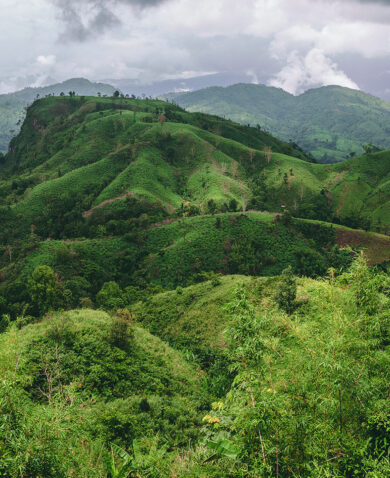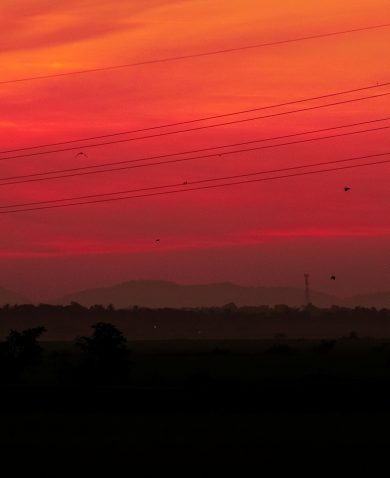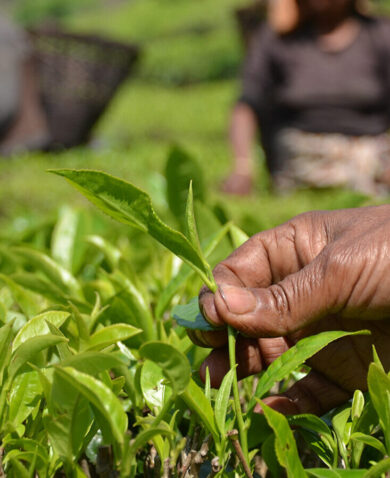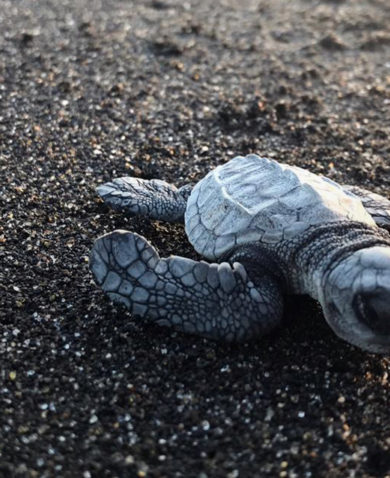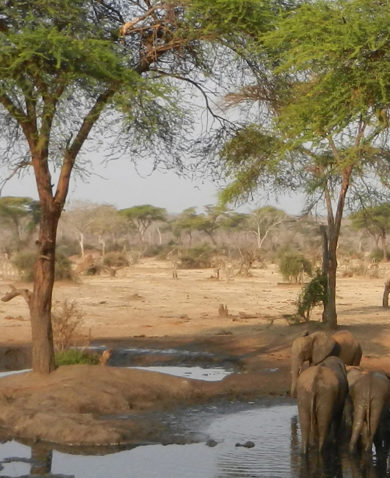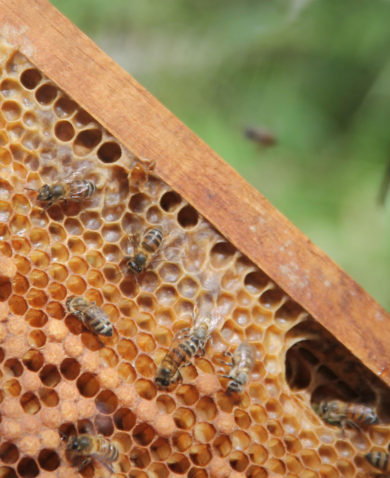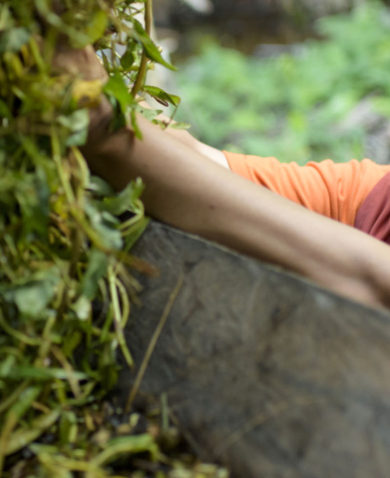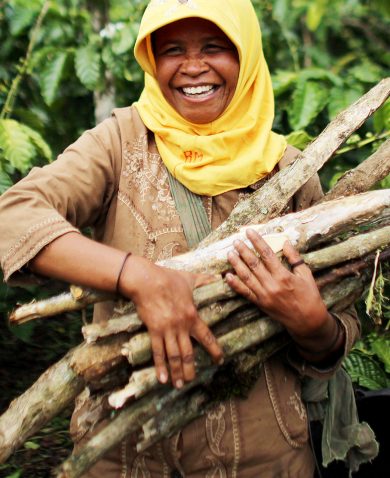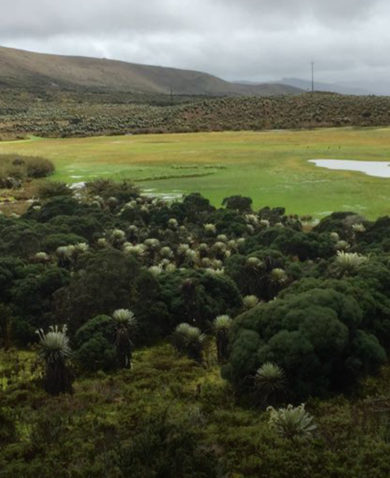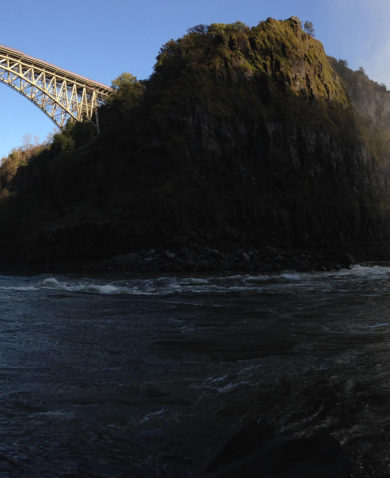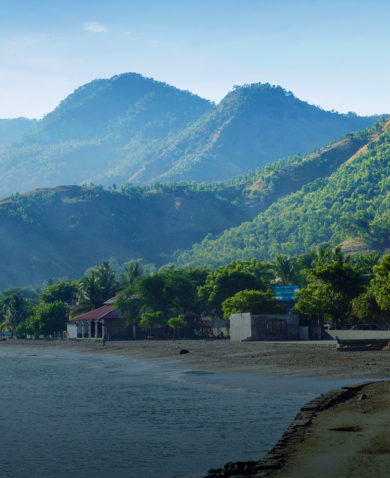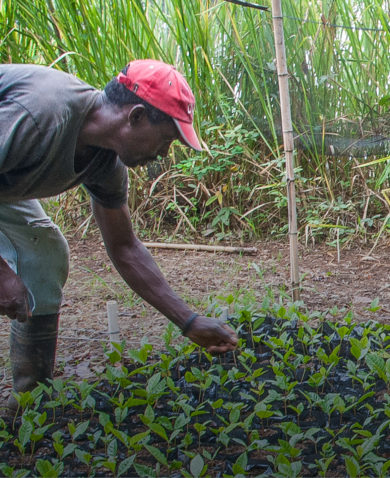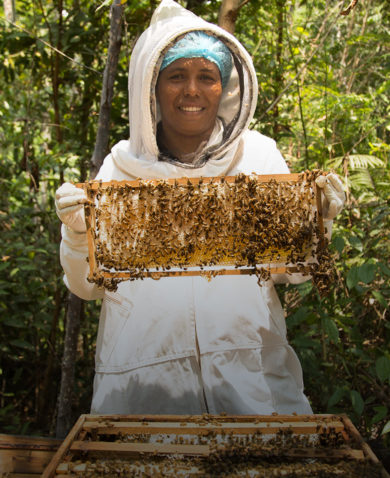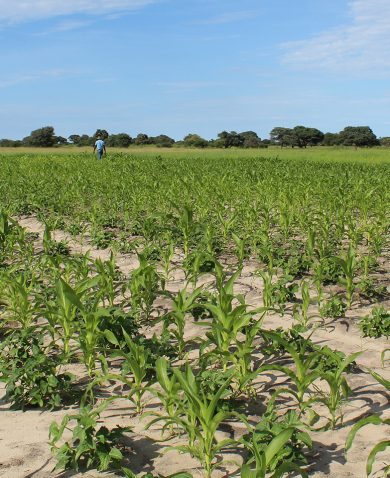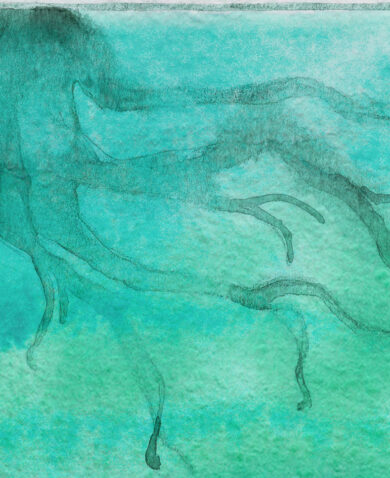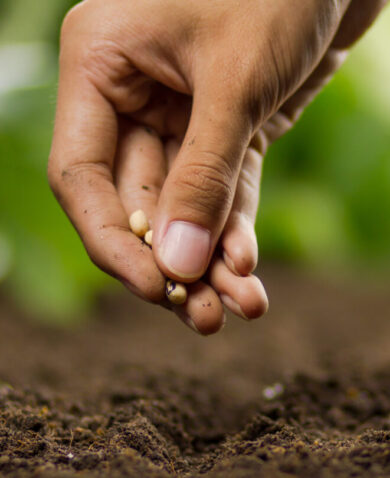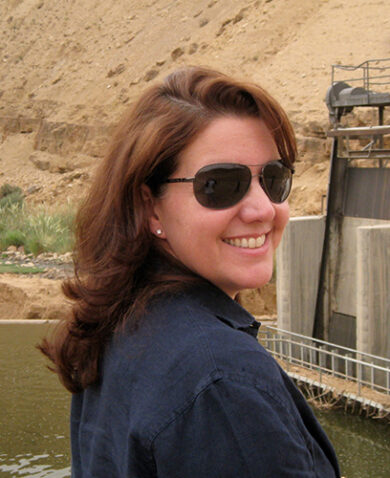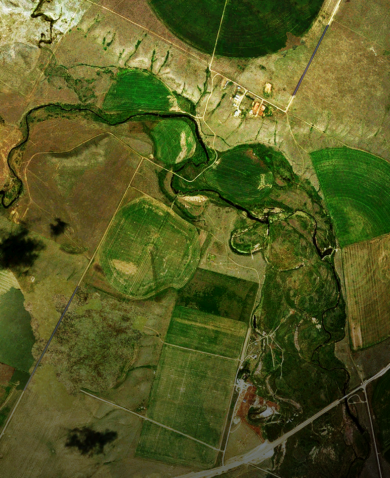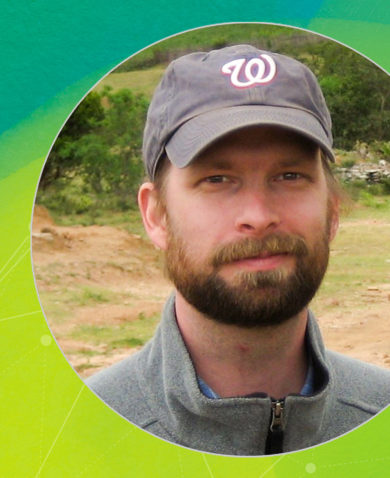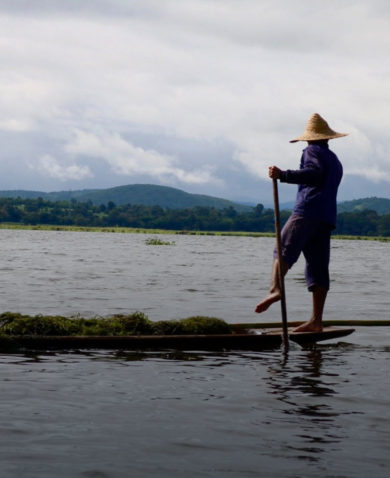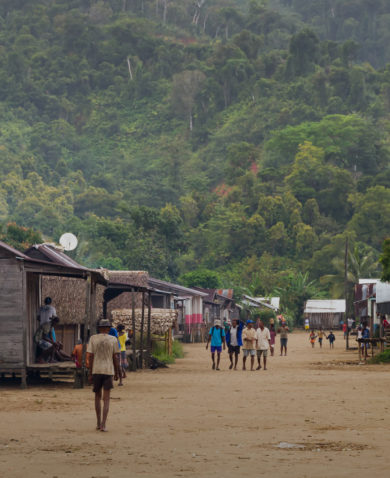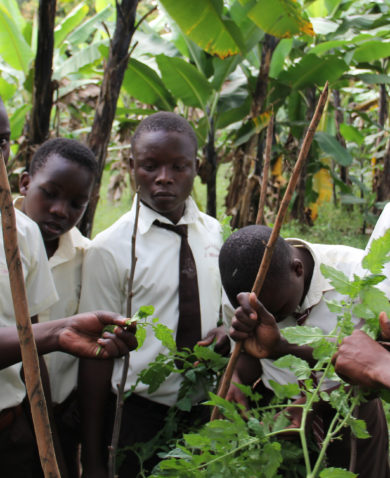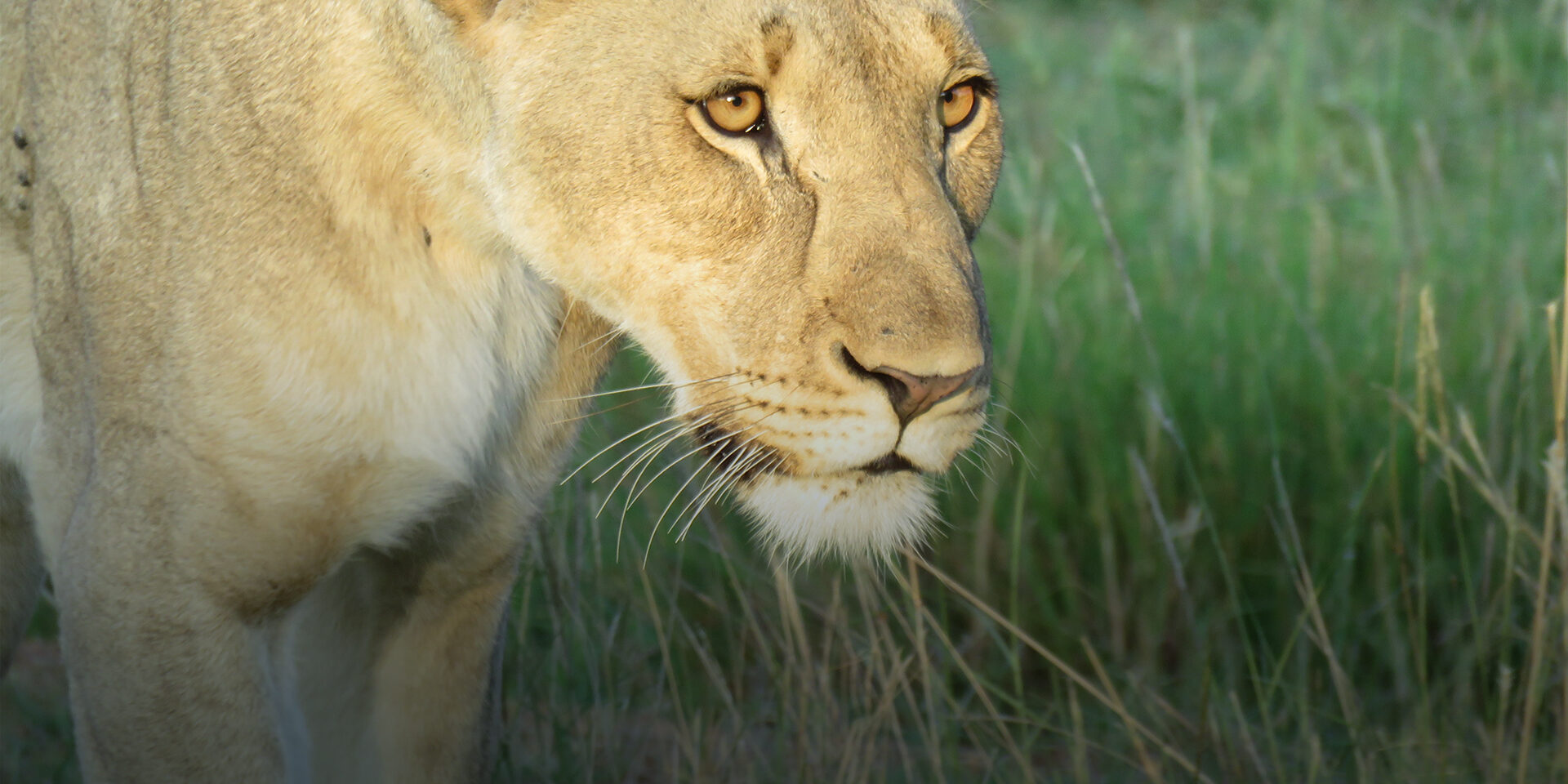
Combating Wildlife Crime Through a Role-Playing Game in South Africa .
October 12, 2021Wildlife crime in southern Africa is no game. But a new role-playing game may be the key to fostering cooperation between nature reserves and nearby communities to combat poaching and trafficking.
After a hard day’s work in a South African nature reserve, a reserve manager is approached by someone in their community who offers them a large sum of money for allowing the organized poaching of a rhinoceros in the state park. The rhino is just one of several species in the park’s protected savanna, which zebras, lions, elephants, and other fauna also call home. Protected areas such as the reserve have elicited mixed reactions among communities whose economic opportunities dwindled as they lost access to key land and water resources when they were pushed from the land to create space for endangered animals like the rhino.
So, what should you do?
Yes, you. After all, you’re the reserve manager. But you aren’t managing an actual nature reserve in South Africa. Instead, you’re in the world of Vukani, an interfaced role-playing game that the Institute of Natural Resources (INR) designed at the request of USAID’s VukaNow Activity, implemented by Chemonics. This game’s purpose is to facilitate discussion between stakeholders on fighting wildlife crime and finding alternative approaches to maintaining an ecologically stable and sustainable intact environment.
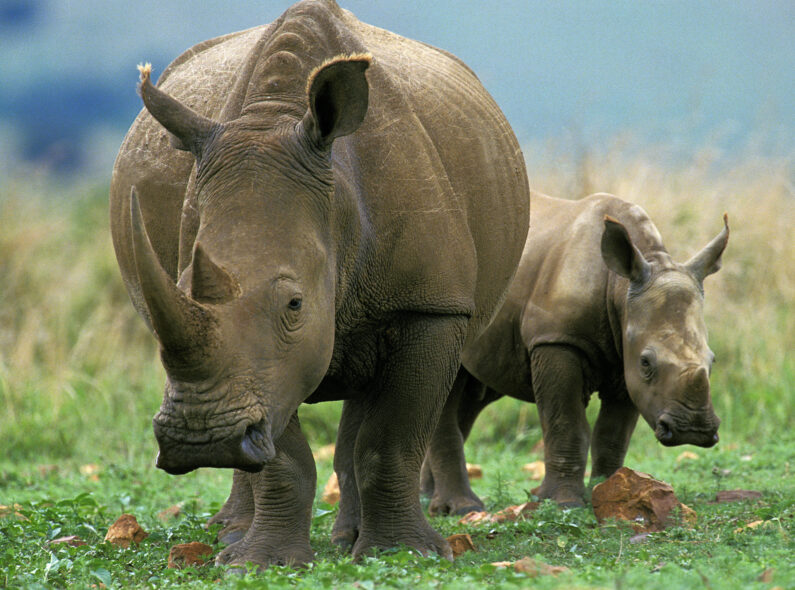
Understanding Wildlife Crime
According to VukaNow Communications Advisor Belinda Glenn, wildlife crime is a multibillion-dollar illicit business, diminishing the diversity and survival prospects of Africa’s wildlife species and compromising economic prosperity and sustainable development in southern Africa.
Wildlife crime threatens the region’s natural capital and undermines economic gains from legal, nature-based enterprises such as ecotourism. Wildlife crime also threatens social stability and cohesion, robbing citizens of their cultural and natural heritage. The organized criminal networks that participate in wildlife crime threaten regional peace and security. Poaching Africa’s protected wildlife is a lucrative form of organized crime, comparable to drug and weapons trafficking.
The frequently fraught relationships between nature parks, like South Africa’s Hluhluwe-iMfolozi Park (HiP), and the surrounding communities compound the problem of wildlife crime. These tense relationships are common throughout most of South Africa.
Communities that were forcibly removed from land to create protected areas like HiP have painful memories associated with the protected areas, and issues such as land claims, improper fence maintenance, and human-wildlife conflict intensify the communities’ negative sentiments. The perception of poor communication from parks in addressing community concerns and livestock loss to escaping wild animals also heighten the tension. Meanwhile, park officials raise concerns around potential community involvement in poaching with dogs, snaring, and rhino poaching.
But nature park advocates have quickly come to understand how essential it is to collaborate with local stakeholders to better combat wildlife crime and address community concerns.
“Wildlife crime is a problem in the park, but it is a problem we cannot solve in a silo,” said INR Senior Community Facilitator Zanele Shezi. “We needed to find a way to get communities meaningfully involved in fighting wildlife crime, rather than potentially participating in it.”
INR and VukaNow decided that gaming could bring the parks and communities together.
Gaming the Solution
VukaNow is a multifaceted, five-year regional activity with the goal of reducing wildlife crime in southern Africa. The activity complements five USAID-funded landscape projects and collaborates with landscape partners including the Food Agriculture and Natural Resources (FANR) Directorate of the Southern African Development Community (SADC), governments, and private sector actors. Meanwhile, INR, based in Pietermaritzburg, South Africa, is a non-profit organization committed to environmental sustainability and the wise use of natural resources.
These organizational actors came together when INR responded to a call for proposals from VukaNow and received a grant to fund the development of the Vukani game in 2019.
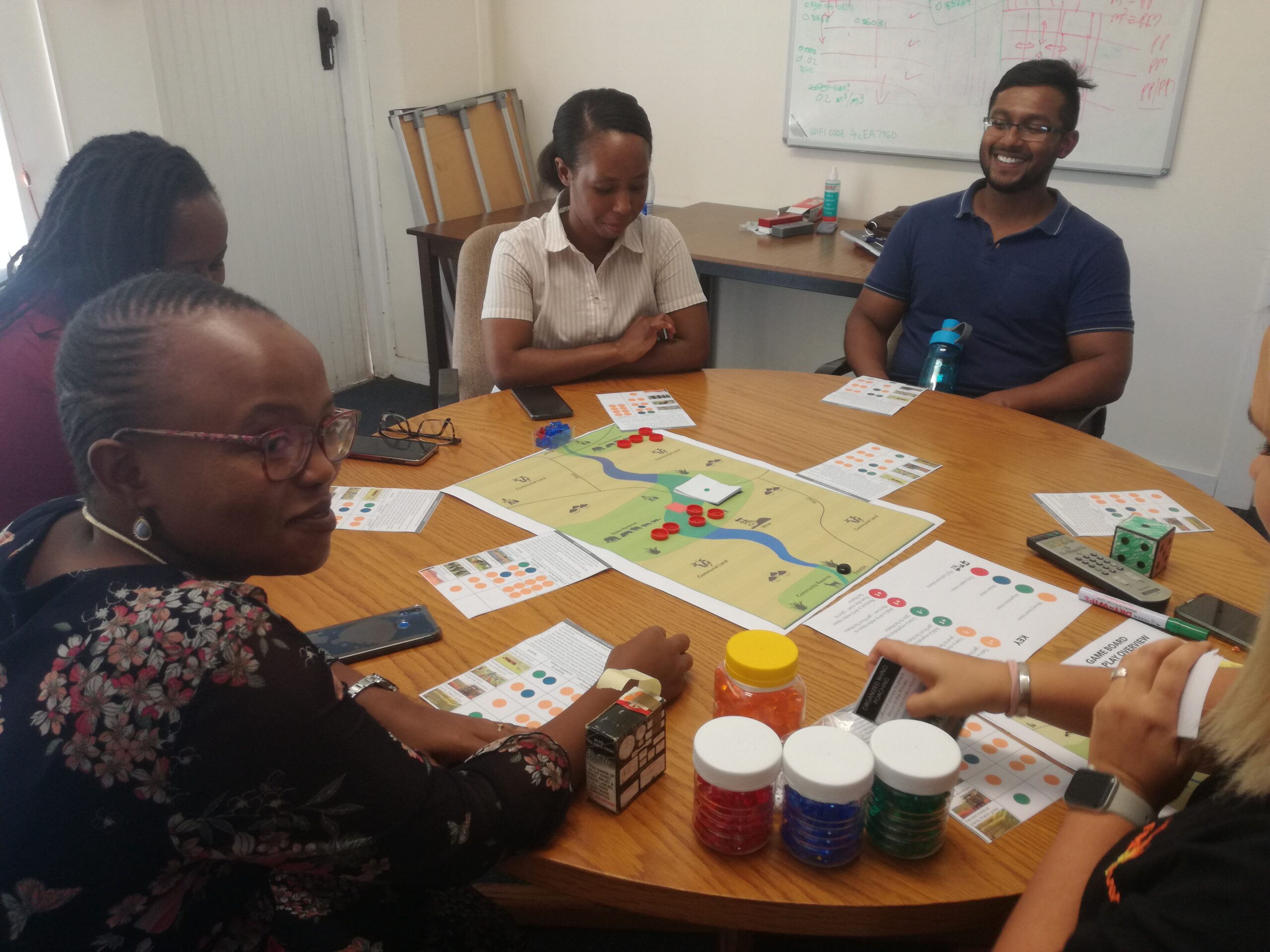
INR was mindful that combating wildlife crime requires collective action, which must include those residing in areas around protected parks. However, INR knew that developing cooperation between parks and communities as well as deepening communities’ understanding of and capacity to fight wildlife crime required an innovative, social learning approach. The approach must translate the complexities of wildlife crime and community impacts in such a way that people from a wide range of skill and literacy levels can understand and engage. Simulation modeling or gaming is a participatory tool that translates complex dynamics into a playable format, which generates understanding through doing. As stakeholders “play out” an abstract version of their reality, they acquire insight into system dynamics, flows, interdependencies, and connections.
How to Play the Game
Players can take the role of different characters represented by onscreen colored titles — Player 1, Player 2, etc. — with as many as 10 players. Among the characters, reserve managers are represented by red labels, community households are represented by green, and traditional authorities, or chiefs, are represented by blue. The facilitator enables players to take turns “rolling” a six-sided die with faces that are colored green, red, and black. These colors correspond to categories of cards, and players select a card that matches the color of the face on which the die lands. Red cards present a challenge to the player and rest of the community, green cards present opportunities, and black cards present illegal activities. Players may choose to pursue these illegal activities or to role the die again. Poaching wildlife is an example of an illegal activity. The emergence of a drought is an example of a challenge. An offer to take a job as a security guard in one of the reserves is an example of an opportunity.
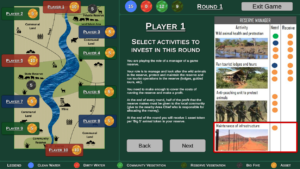
The players select activities via the interface “cards” to secure tokens in the form of money or communal assets, such as water or vegetation. At the end of every round, half the profits the reserve earns are given to the local community’s chief, who allocates the money.
After participants play several rounds and agree that no more rounds are needed, the facilitator leads a discussion on how participants can apply insights they had during the game to reality.
To add authenticity to the Vukani game, INR recruited local stakeholders to inform the game’s design. INR engaged with traditional authorities or chiefs, Ezemvelo KZN (KwaZulu-Natal) Wildlife, community liaison officers from state and private protected areas and NGOs, Project Rhino staff, and community members.
“These stakeholders provided good understanding of the local context, including physical as well as social and institutional aspects,” Shezi said.
Pivoting for COVID-19
The first version of Vukani took the form of an actual board game, which INR tested and developed internally. However, COVID-19 and the resulting lockdown constrained field activities and testing. As a result, INR and VukaNow adapted the game to allow for social distancing, redesigning an interface that can be projected onto a screen, with a game facilitator taking actions on behalf of the players.
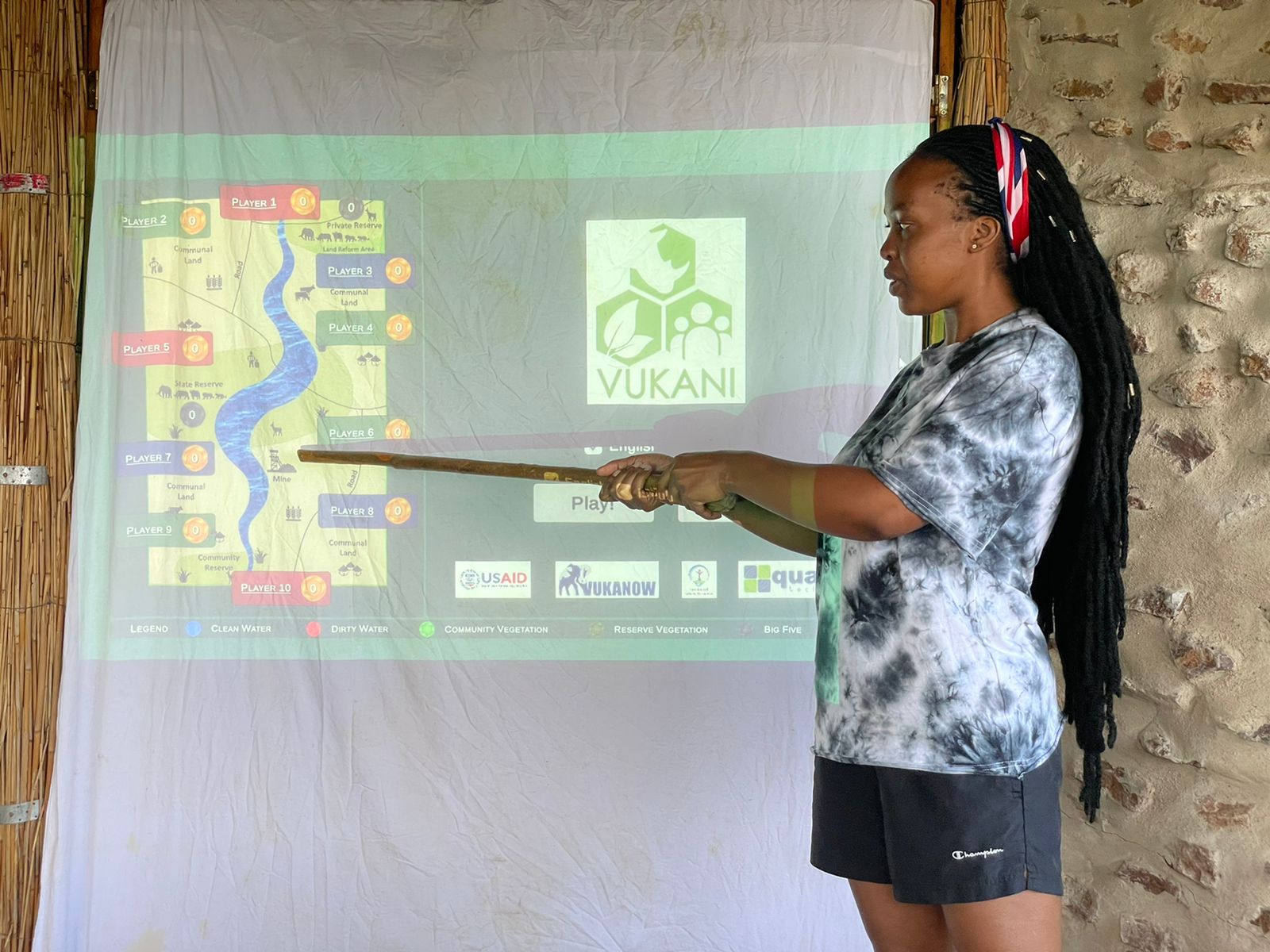
As with many role-playing games, in Vukani, the facilitator controls the action, making “moves” on behalf of the participants. Participants in multiple locations have played over Zoom on a few occasions. The facilitator leads conversation during and after the game to explore why people made their choices and what they learned.
Quartex Technologies, a local software development company, designed the electronic version of the game.
Results and Reviews
Stakeholders have reacted positively to Vukani, with players of all ages using the game to engage with each other to examine issues related to wildlife crime. To date, those from education facilities, traditional authorities, and WildTrust Conservation ambassadors have played the game. Tests conducted before and after participants play the game have shown that, in general, the game increases participants’ understanding of wildlife crime and its impact on communities.
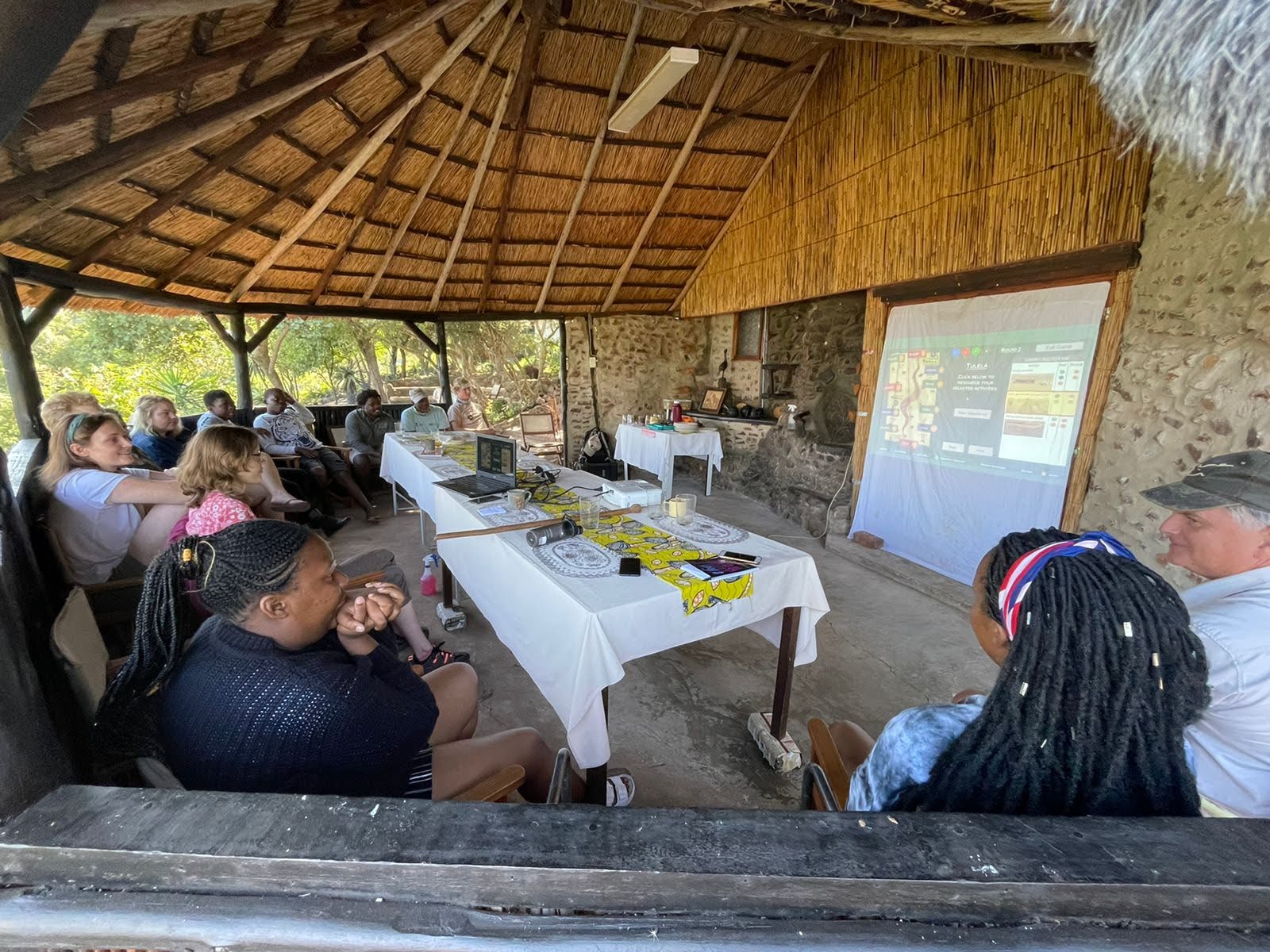
Two young men within the local community, who also participated in a World Youth Wildlife Champions event, played Vukani, and it changed their views on wildlife crime.
“I learned a lot when it comes to sustainability and how to live side by side with wildlife,” said Nqubeko Mbuyazi, age 17. “This game may be a game, but it’s managed to restore the love of nature in me.”
“What I learned was that corruption and hunger are the other factors that drive these poaching schemes,” said Nduduzo Ngubane, age 18. “I have realized that by engaging the communities and coming together as one, conservation could achieve its mission of trying to save wildlife.”
The game can be downloaded at http://www.quartex.co.za/download/vukani/vukani.zip
Banner Image: A female lion in South Africa (Source: Belinda Glenn, USAID VukaNow Activity).









